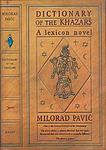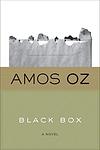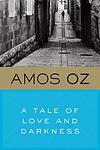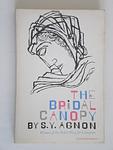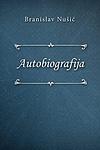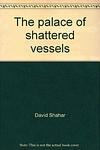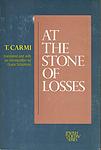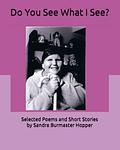The Greatest Israeli, Serbian Books of All Time
Click to learn how this list is calculated.
This list represents a comprehensive and trusted collection of the greatest books. Developed through a specialized algorithm, it brings together 300 'best of' book lists to form a definitive guide to the world's most acclaimed books. For those interested in how these books are chosen, additional details can be found on the rankings page.
Genres
Countries
Date Range
Reading Statistics
Click the button below to see how many of these books you've read!
Download
If you're interested in downloading this list as a CSV file for use in a spreadsheet application, you can easily do so by clicking the button below. Please note that to ensure a manageable file size and faster download, the CSV will include details for only the first 500 books.
Download-
1. The Book of Job by Unknown
"The Book of Job" is a profound biblical narrative that explores the themes of faith, suffering, and divine justice. It tells the story of Job, a prosperous and righteous man who experiences immense suffering as he loses his wealth, children, and health. Despite his trials, Job maintains his faith in God, engaging in intense dialogues about human suffering and divine justice. The story concludes with God restoring Job's fortunes and blessing him more abundantly than before, demonstrating the inscrutable nature of divine wisdom and the rewards of unwavering faith.
-
2. A Tomb for Boris Davidovich by Danilo Kiš
"A Tomb for Boris Davidovich" is a collection of seven short stories exploring the nature of political and personal identity, primarily in Eastern Europe during the 20th century. The stories are interconnected, each focusing on a different character who is caught up in the political turmoil of the time, often meeting tragic ends. The book is known for its exploration of totalitarianism, the nature of identity, and the power of the state over the individual.
-
3. Dictionary of the Khazars by Milorad Pavic
"Dictionary of the Khazars" is a metaphysical, historical novel written in the form of a lexicon. The book presents three different versions - Christian, Islamic, and Hebrew - of the history of the Khazars, an ancient people who converted to one of these three religions. The novel, filled with dreamlike narratives and fantastical elements, invites the reader to become an active participant, choosing their own path through the non-linear text, and even solving a murder mystery embedded within the story.
-
4. Sapiens: A Brief History of Humankind by Yuval Noah Harari
This book provides a comprehensive exploration of the history of the human species, tracing back from the earliest forms of Homo Sapiens to the modern day. It delves into evolutionary biology, the development of cultures and societies, and the rise of major ideologies and technologies. The book also discusses the future of the species, posing thought-provoking questions about our roles and responsibilities in a rapidly changing world.
-
5. Garden, Ashes by Danilo Kiš
"Garden, Ashes" is a semi-autobiographical novel set during World War II, tracing the experiences of a Jewish boy and his eccentric father in Hungary. The narrative weaves between the boy's vivid imagination and the harsh realities of war, as he grapples with his father's unusual behavior and the increasing threat of the Holocaust. The book is a poignant exploration of childhood, family, and the impact of war on ordinary lives.
-
6. Thinking, Fast and Slow by Daniel Kahneman
The book delves into the two systems that drive the way we think—System 1, which is fast and intuitive, and System 2, which is slow and deliberate. The author, a Nobel laureate, explores how these systems shape our judgments and decision-making. He presents several groundbreaking experiments that have shaped our understanding of human thought, revealing where we can trust our intuitions and how we can tap into the benefits of slow thinking. The book also discusses how our cognitive biases often lead to errors in judgment and affect our decision-making processes.
-
7. Black Box by Amos Oz
"Black Box" is a novel that explores the complex dynamics of a broken family. The story revolves around a divorced couple who are forced to reconnect after their son begins to display troubling behavior. The husband, a stern and disciplined judge, and the wife, a free-spirited Holocaust survivor, must navigate their personal differences, past hurts, and current relationships to address their son's issues. The book is written in the form of letters, revealing the characters' inner thoughts and struggles, making it a profound exploration of human relationships, regret, and reconciliation.
-
8. An Analysis Of The Communist System by Milovan Djilas
The book provides a critical examination of the communist system from an insider's perspective. The author, a former high-ranking official in a communist government, offers a detailed critique of the system's theoretical and practical shortcomings. He discusses the inherent contradictions between the ideology's promises of equality and the reality of a new class of bureaucratic elites that emerge to control the state apparatus. The work delves into the mechanisms of party control, the suppression of individual freedoms, and the economic inefficiencies that plagued communist states, ultimately questioning the sustainability and moral legitimacy of the system itself.
-
9. A Tale of Love and Darkness by Amos Oz
This book is a poignant memoir that explores the complexities of love, darkness, loss, and the endurance of the human spirit. Set against the backdrop of the end of the British Mandate for Palestine and the early years of the State of Israel, the author recounts his childhood in Jerusalem, the suicide of his mother, and his path to becoming a writer. The narrative is both a personal account and a portrait of a society in turmoil, providing a profound exploration of the individual and collective psyche.
-
10. The Bridal Canopy by Shmuel Yosef Agnon
The novel is a rich tapestry of 19th-century Jewish life in Eastern Europe, following the picaresque journey of Reb Yudel, a poor, pious Jew, as he travels through Galician villages in search of suitable husbands for his three daughters. Along the way, he encounters a vivid cast of characters and experiences a series of adventures that reveal the customs, struggles, and faith of the Jewish communities of that era. The narrative, imbued with religious and folkloric elements, offers a blend of humor, irony, and profound insight into human nature and divine providence, painting a nostalgic picture of a bygone world.
-
11. Twilight And Other Stories by Shulamith Hareven
"Twilight and Other Stories" is a collection of evocative short stories that delve into the complexities of human experience, exploring themes of love, loss, identity, and the passage of time. The narratives, set against diverse backdrops, from ancient times to modern-day Israel, weave together a tapestry of characters each confronting their own moral dilemmas and emotional struggles. With a poetic and introspective style, the stories in this anthology invite readers to reflect on the subtle shades of humanity and the profound impact of seemingly ordinary moments.
-
12. Homo Deus by Yuval Noah Harari
This book explores the future of humankind, building upon the foundation laid by its exploration of our past. It delves into the potential paths humanity might take as technological advancements and artificial intelligence begin to challenge the very essence of what it means to be human. The narrative posits that as we conquer famine, war, and plague, our focus shifts towards achieving happiness, immortality, and divinity, raising profound questions about our future roles and values in a world where machines and algorithms might outperform us in thinking, making decisions, and understanding the universe. Through a blend of philosophy, history, and future-gazing, the book invites readers to consider the implications of such a future, both exhilarating and daunting.
-
13. Autobiografija by Branislav Nušić
This book is a satirical account that delves into the life and times of its author, a prominent figure in Serbian literature. Through a blend of humor and irony, it explores his experiences from childhood, his education, and his varied professional endeavors, including his time in the civil service and his involvement in the theater. The narrative is marked by the author's keen observations of societal norms and the bureaucratic absurdities of his era, presenting a critical yet humorous critique of the social and political milieu of the Balkans in the late 19th and early 20th centuries. Through its engaging prose, the autobiography not only offers insights into the author's personal life but also provides a window into the cultural and historical context of the period, making it a significant work in the canon of Serbian literature.
-
14. My Life by Golda Meir
The book is an autobiography of one of the most influential women in modern history, who rose from the poverty of her childhood in Russia and Milwaukee to become the Prime Minister of Israel. It offers a compelling account of her role in the founding of the state of Israel and its early years, providing personal insights into the myriad political and military challenges the nascent country faced. The narrative is interwoven with her own life story, including her experiences with immigration, education, and her rise through the ranks of the labor movement and political leadership, all set against the backdrop of the 20th century's tumultuous events leading up to and following the establishment of Israel.
-
15. The Tiger's Wife by Téa Obreht
"The Tiger's Wife" is a captivating novel that weaves together the lives of a young doctor and her grandfather in war-torn Balkans. As the doctor embarks on a journey to uncover the truth behind her grandfather's mysterious death, she unravels a tapestry of folklore, superstition, and family secrets. Through her exploration, she uncovers the extraordinary story of the tiger's wife, a woman believed to possess the power to communicate with animals. This beautifully written tale explores themes of love, loss, and the enduring power of storytelling.
-
16. Shirot Bialik by Hayyim Nahman Bialik
The book is a collection of poems by one of the most renowned Hebrew poets, reflecting a deep engagement with the Jewish experience and a masterful command of language. The poems range from personal reflections to nationalistic themes, exploring love, nature, and the struggles of the Jewish people. The poet's work is characterized by its emotional depth, lyrical beauty, and the use of traditional Jewish texts, which he reinterprets to address the contemporary issues of his time. His writing has left a lasting impact on Hebrew literature and Jewish culture, cementing his status as a national poet.
-
17. Twenty One Stories by Shmuel Yosef Agnon
"Twenty One Stories" is a collection of short stories that delve into the complexities of Jewish life, blending elements of folklore, religious tradition, and modernity. The tales, set against the backdrop of Eastern Europe and the Land of Israel, explore themes of faith, identity, exile, and redemption. The author's rich prose and deep understanding of human nature illuminate the struggles and aspirations of his characters, offering a window into the soul of a people and the cultural crossroads at which they stand. Through a tapestry of narratives, the book captures the essence of a bygone era while reflecting timeless truths about the human condition.
-
18. Poems Of Nathan Zach by Nathan Zach
The book is a collection of poetry by an influential modern Hebrew poet, known for his innovative and modernist approach to language and form. The poems explore themes of identity, existentialism, and the human condition, often challenging traditional poetic structures and expectations. The poet's work is characterized by its lyrical intensity, intellectual depth, and a profound engagement with the cultural and historical landscape of his time. Through his verse, readers are invited to contemplate the complexities of individual experience within the broader context of collective memory and societal change.
-
19. The Palace Of Shattered Vessels by David Shahar
The book is a rich tapestry of life in Jerusalem during the British Mandate period, weaving together the stories of a diverse cast of characters, from a young Jewish boy to an aging British consul. Set against the backdrop of a city steeped in history and conflict, the narrative explores themes of love, loss, and the complexities of human relationships. As the characters' lives intersect in unexpected ways, the novel delves into the cultural and political tensions of the time, painting a vivid portrait of a society on the brink of monumental change. Through its lyrical prose and intricate storytelling, the book captures the essence of Jerusalem's enduring mystique and the fragile beauty of human experience.
-
20. In The Heart Of The Seas by Shmuel Yosef Agnon
The book is a historical novella that follows a group of devout Jews from the Old Yishuv in Jerusalem as they embark on a perilous journey to the land of Israel in the late 19th century. Through a blend of myth, legend, and reality, the narrative explores themes of faith, longing, and the hardships of travel as the characters confront the trials of the sea and their own spiritual quests. The story delves into the lives and aspirations of these pilgrims, who are driven by a deep yearning to return to their ancestral homeland and the holy city of Jerusalem, reflecting on the enduring connection between a people and their sacred geography.
-
21. The Travels And Adventures Of Benjamin The Third by Mendele Mokher Seforim
The book is a satirical novel that follows the whimsical journey of a simple, dreamy Jewish villager, Benjamin, who is inspired by "Don Quixote" and sets out on a quest for adventure and discovery. Along with his loyal companion, they embark on a series of misadventures, seeking legendary rivers and wealth, but instead encounter the harsh realities of the Jewish existence in the Russian Empire. The narrative humorously critiques the social and political conditions of the time, while also exploring themes of escapism, the power of imagination, and the human condition.
-
22. At The Stone Of Losses by T. Carmi
"At The Stone Of Losses" is a poetic exploration of memory, grief, and the enduring power of language. The work delves into the depths of personal and collective history, intertwining the author's own experiences with broader historical and mythological narratives. Through a tapestry of vivid imagery and emotive verse, the poet grapples with the themes of displacement, identity, and the search for meaning amidst the ruins of the past. The collection serves as a meditation on the ways in which we confront and commemorate loss, ultimately offering a poignant reflection on the human condition and our quest for understanding in a fragmented world.
-
23. Selected Poetry by Yehuda Amichai
The book is a compilation of poems by one of the most prominent Israeli poets, renowned for his innovative and evocative exploration of love, war, and the complexities of Jewish identity. The collection spans several decades of the poet's work, reflecting on personal and historical experiences while weaving a rich tapestry of images and emotions. The poet's language is both accessible and profound, often drawing from the well of biblical and modern Israeli life to create a body of work that resonates with universal themes of time, memory, and the human condition.
-
24. Selected Poems by Vasko Popa
"Selected Poems" is a compilation of the most notable works by one of Serbia's most prominent poets, offering a journey through a landscape rich with folklore, myth, and personal symbolism. The collection showcases the poet's mastery of metaphor and his ability to distill complex human emotions and existential themes into concise, powerful imagery. His poetry, often characterized by a sense of mystery and a deep connection to the collective unconscious, reflects both the cultural heritage of his homeland and universal human experiences, resonating with readers across cultural boundaries. Through his unique voice, the poet invites readers to explore the depths of the human psyche and the paradoxes of life and death.
-
25. Arabesques by Anton Shammas
"Arabesques" is a novel that intricately blends autobiography, fiction, and historical narrative to explore the complexities of identity and heritage. Set primarily in the Arab village of Fassuta in northern Israel, the story delves into the life of the narrator and his extended family, tracing their roots and experiences across generations and borders. Through a tapestry of memories, stories, and shifting perspectives, the novel examines themes of displacement, belonging, and the cultural and political tensions in the Middle East, all while challenging the boundaries between history and memory, and truth and fiction.
Reading Statistics
Click the button below to see how many of these books you've read!
Download
If you're interested in downloading this list as a CSV file for use in a spreadsheet application, you can easily do so by clicking the button below. Please note that to ensure a manageable file size and faster download, the CSV will include details for only the first 500 books.
Download

